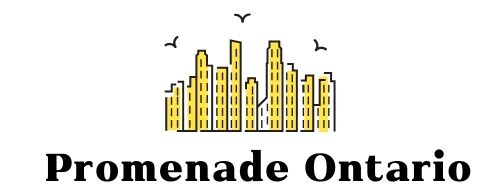Effective Team Building Strategies for a Stronger Workplace
Building a strong and cohesive team is essential for any organization’s success. Whether you’re managing a small business, a corporate team, or a remote workforce, team building strategies can help improve collaboration, communication, and overall productivity. By fostering a positive work environment, teams can work more effectively toward shared goals. In this article, we will explore practical team building strategies that can enhance teamwork and boost performance.
1. Establish Clear Goals and Roles
One of the most important team building strategies is to ensure that each team member understands their role and responsibilities. When expectations are clear, teams can work more efficiently without confusion or overlap.
- Define team objectives: Make sure that everyone is aligned with the team’s mission and goals.
- Assign roles based on strengths: Leverage each team member’s unique skills to maximize productivity.
- Set measurable goals: Use Key Performance Indicators (KPIs) to track progress and ensure accountability.
2. Improve Communication
Effective communication is the foundation of a successful team. Without open and honest communication, misunderstandings and conflicts can arise, leading to decreased morale and productivity.
- Encourage open discussions: Create a safe environment where employees feel comfortable sharing ideas and concerns.
- Utilize communication tools: Use platforms like Slack, Microsoft Teams, or Zoom to streamline communication, especially for remote teams.
- Hold regular team meetings: Weekly or biweekly meetings help keep everyone on the same page and provide an opportunity for feedback.
3. Foster a Culture of Trust
Trust is a key element in any successful team. When team members trust each other, they collaborate more effectively and feel more confident in their work. Leaders should set an example by being transparent and approachable.
Ways to build trust among team members:
- Be honest and transparent: Share important company updates and decisions openly.
- Encourage team bonding activities: Social events and team outings help build personal connections.
- Recognize and appreciate efforts: Show appreciation for employees’ hard work through praise, rewards, or incentives.
4. Encourage Collaboration
Teams that collaborate well can accomplish more in less time. Encouraging teamwork allows individuals to contribute their strengths and support each other’s weaknesses.
- Use collaborative tools: Platforms like Google Workspace, Trello, or Asana help teams coordinate tasks efficiently.
- Promote cross-departmental projects: Encourage employees from different departments to work together to enhance problem-solving.
- Organize brainstorming sessions: Group discussions help generate innovative ideas and solutions.
5. Provide Professional Development Opportunities
Investing in employees’ growth improves both individual performance and overall team effectiveness. Continuous learning opportunities help employees develop new skills and stay engaged.
Some ways to promote professional growth:
- Offer training sessions: Provide workshops, online courses, or mentorship programs.
- Encourage leadership development: Identify potential leaders and provide opportunities for growth.
- Support career goals: Understand employees’ aspirations and help them achieve their objectives within the company.
6. Promote a Positive Work Environment
A positive and motivating work environment can significantly impact team morale and productivity. Employees perform better when they feel valued, respected, and engaged.
- Encourage work-life balance: Support flexible work arrangements and promote healthy work habits.
- Recognize achievements: Celebrate team and individual successes to boost morale.
- Encourage feedback: Create a culture where employees can share their thoughts and suggestions freely.
7. Resolve Conflicts Effectively
Conflicts are inevitable in any workplace, but how they are handled makes all the difference. Addressing conflicts promptly and professionally helps maintain a positive work environment.
Conflict resolution strategies:
- Encourage open dialogue: Allow employees to express their concerns and listen to all perspectives.
- Mediate when necessary: A neutral party, such as a manager or HR representative, can help resolve disputes fairly.
- Focus on solutions: Instead of dwelling on the problem, find constructive ways to move forward.
8. Organize Team Building Activities
Team building activities help strengthen relationships, improve morale, and create a sense of unity among employees. These activities don’t have to be extravagant or time-consuming—they can be as simple as a lunch outing or a virtual game session.
Ideas for team-building activities:
- Outdoor retreats: Plan team outings such as hiking, camping, or sports events.
- Volunteer work: Participate in community service as a team to foster a sense of purpose.
- Fun challenges: Engage employees in friendly competitions like trivia games or escape rooms.
9. Set Up a Reward System
Recognizing employees’ hard work through rewards and incentives can significantly boost motivation and performance. When employees feel appreciated, they are more likely to stay engaged and committed to their team.
Types of rewards to consider:
- Performance-based bonuses: Offer financial incentives for outstanding contributions.
- Public recognition: Highlight employee achievements in meetings or company newsletters.
- Extra time off: Reward top performers with additional vacation days.
10. Lead by Example
Effective leadership is crucial for team success. Leaders who embody teamwork, integrity, and dedication inspire their employees to do the same. By demonstrating the behaviors you want to see in your team, you create a positive and productive work culture.
Conclusion
Strong teams are the foundation of any successful organization. By implementing these team building strategies—such as improving communication, fostering trust, promoting collaboration, and recognizing achievements—you can create a motivated and efficient workforce. Team building is an ongoing process that requires consistent effort, but the rewards of a well-functioning and harmonious team are invaluable.




